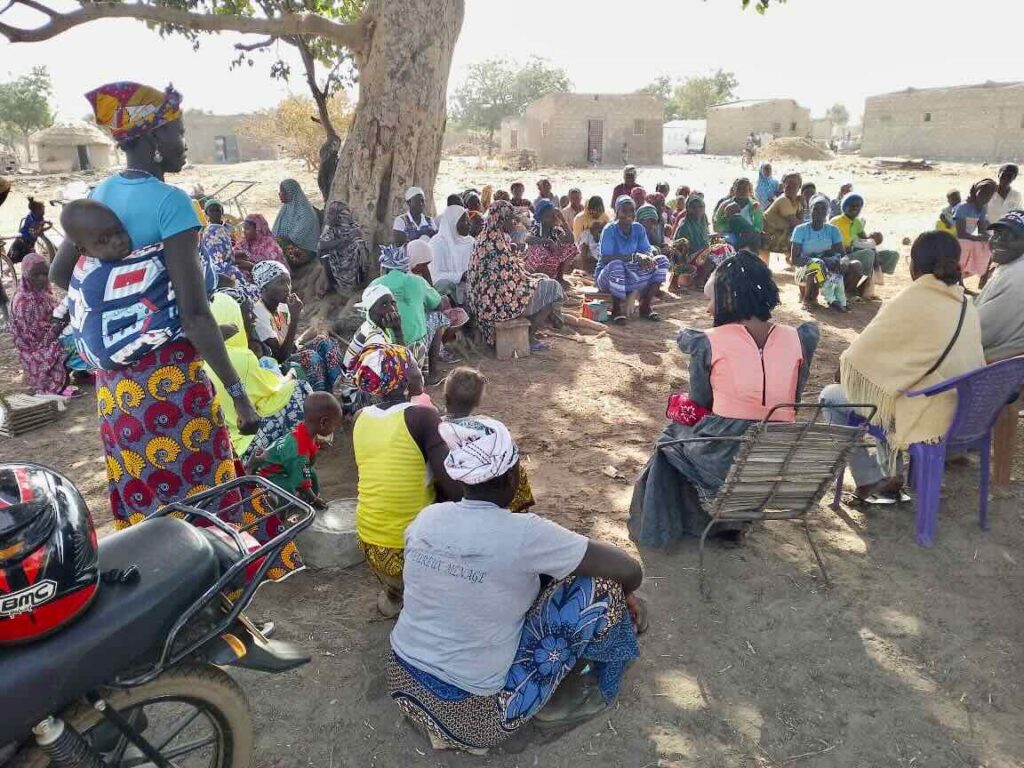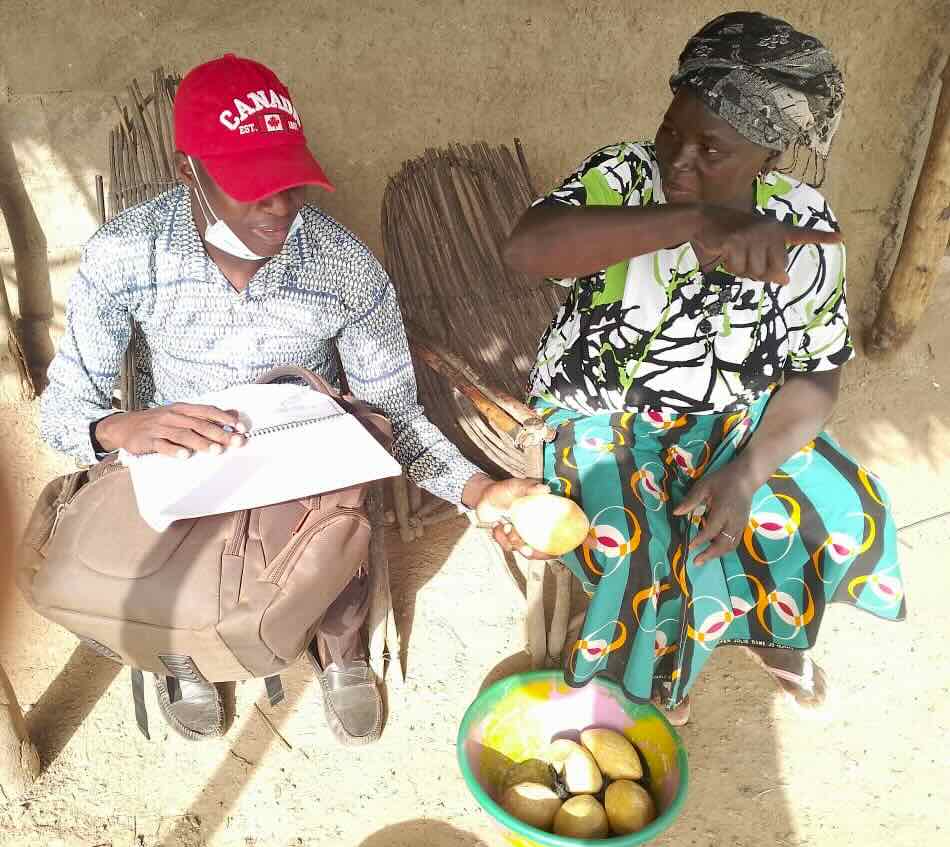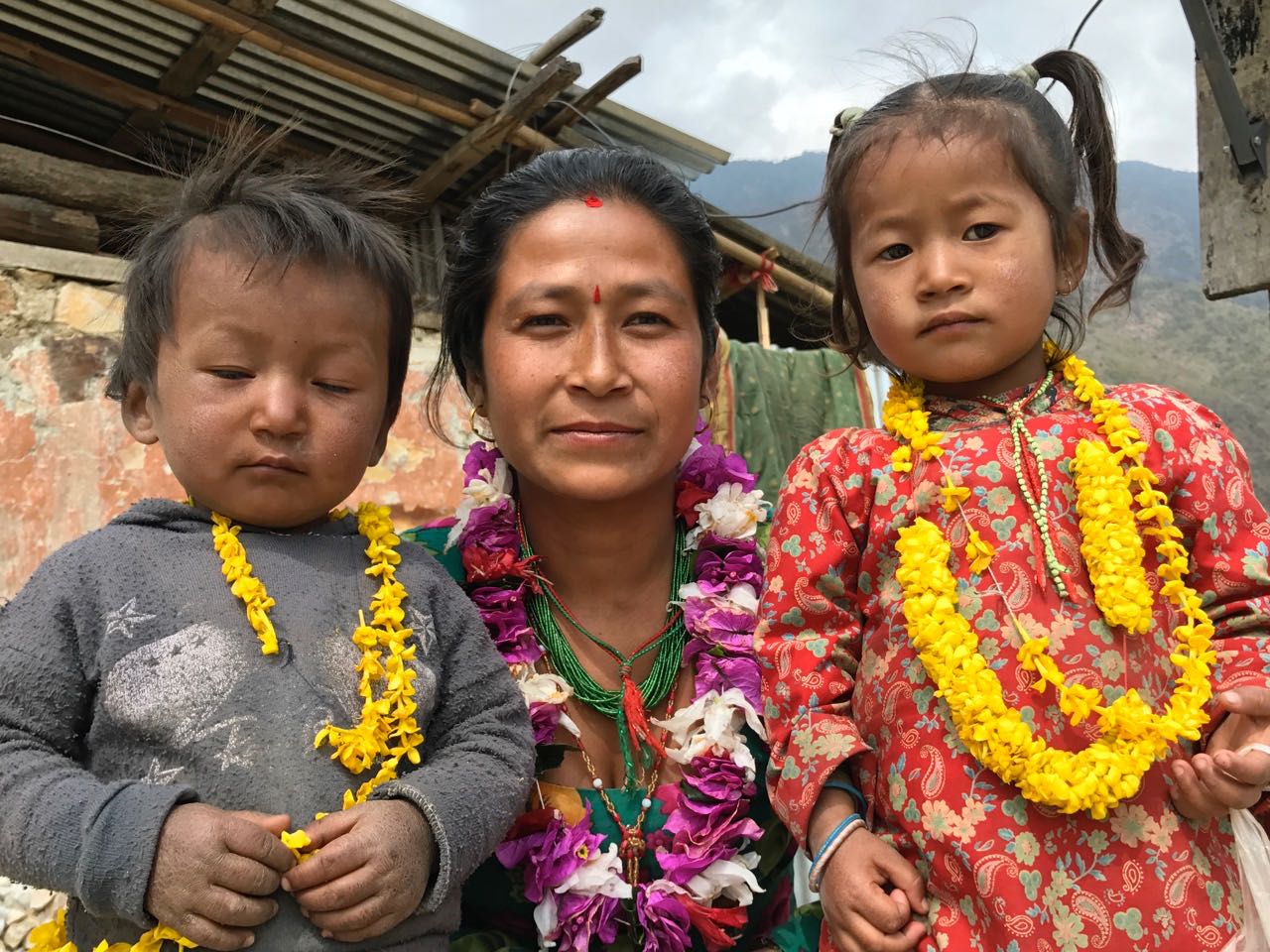by Judy Gray with information from Rébéka Tankoano

Rural families in eastern Burkina Faso have been forced to relocate to the town of Fada to escape violence between insurgents and the army. World Neighbours Canada’s local partner organization, APDC, continues to support these families with new approaches. Rébéka Tankoano, project coordinator with APDC, recently sent us a report to provide an update about current activities. Here are a few excerpts from her report:
“In addition to setting up new revenue-generating enterprises, the APDC team continued to strengthen the capacities of beneficiaries through regular monitoring and follow-up. This monitoring enabled them to understand how the enterprises were progressing and to encourage beneficiaries (both old and new) to further strengthen their activities. During these visits, the team provided practical advice to beneficiaries based on the difficulties encountered by some women, especially those selling soap. The APDC team suggested that these women learn other activities that are more profitable than soap selling. During our follow-up visits between January and June 2025, some of these beneficiaries impressed us with their transition to peanut processing and marketing. We should point out that their learning was facilitated by a few former beneficiaries, such as Touampoa Thiombiano. It is clear that the average profit from a one day of peanut products’ sales is greater than 1,500 francs (about $4 Canadian, decent daily earnings) for each beneficiary.”
Rébéka also shared comments from some of the entrepreneurs:
Dabini Lamoudi (previously making and selling soap but now has a peanut processing enterprise): “I am happy with this activity. It is more profitable than soap-making, and I am supporting my family. Touampoa trained me, and I have already trained three other women who have also started their own businesses and are supporting their families.”
Thiombiano Koagli (peanut processing enterprise): “My dream has finally come true. I’m so happy with this business. It’s profitable, I have loyal customers, and I’m training other women who are already in this business. Thank you so much to APDC and its partners.”
Onadia Anne-Marie (peanut processing enterprise): “At first, I had some problems with the peanut paste, so that slowed me down a bit, but now I have got the hang of it, and I am doing well. “
Yonli Namouno (preparing and selling local foods): “Because beans and cereals are so expensive, I don’t cook every day, but I also make dolo (a traditional beer) and sell it regularly. Overall, things are going well. I’m able to pay for condiments, water, etc.”

Rébéka is very candid with the information in her reports, and she includes comments that explain the difficulties that some women are facing. These include the rising cost of cereals or other inputs, illness in the family, difficulty accessing firewood that is required for cooking, and the difficulty in finding transportation to get to a market from the outskirts of Fada.
Despite these issues, and the uncertainty these families face daily, APDC continues to provide support and advice, and organize educational sessions on hygiene and how to prepare nutritious meals. The APDC employees are trusted and well-respected by the growing number of internally displaced refugees; and these women are very appreciative of the opportunities they have been offered.

